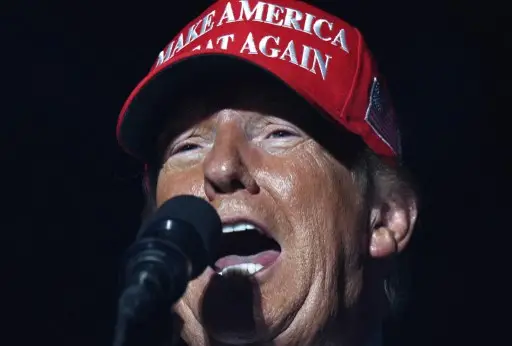Washington, D.C. – A new wave of legal battles erupted this week as 18 Democratic-led states filed a lawsuit challenging former President Donald Trump’s executive order to end birthright citizenship. The controversial order, unveiled shortly after Trump assumed office, has sparked heated debates across the nation, with critics calling it a direct violation of constitutional rights.
The lawsuit, filed in a federal court in Massachusetts, targets what opponents describe as an unprecedented overreach of executive power. California Attorney General Rob Bonta, speaking on behalf of the coalition of states, didn’t mince words. “This executive order is unconstitutional, un-American, and undermines the fundamental principles that this country was built on. We will not allow it to stand,” Bonta said during a press conference.
The executive order seeks to reinterpret the 14th Amendment of the U.S. Constitution, which has guaranteed birthright citizenship for over 150 years. Enacted after the Civil War to secure the rights of freed slaves, the amendment declares: “All persons born or naturalized in the United States, and subject to the jurisdiction thereof, are citizens of the United States and of the State wherein they reside.”
If implemented, Trump’s order would strip automatic citizenship from children born on U.S. soil to non-citizen parents, including those residing in the country without legal status or temporarily. The order would also bar the issuance of passports, citizenship certificates, and other official documents to these individuals.
“This is not just about immigration policy — it’s about the Constitution and the rights it guarantees to every individual born in this country,” said New York Attorney General Letitia James, who joined the legal action.
Civil rights organizations, including the American Civil Liberties Union (ACLU), have filed a separate but similar lawsuit in New Hampshire, arguing that the order sets a dangerous precedent. “This executive order, if upheld, would create a class of stateless individuals, violating the fundamental principles of equality and justice,” an ACLU spokesperson stated.
Trump, when signing the executive order, appeared to anticipate the lawsuits. “I’m confident this will stand, but we’ll see what happens,” he said, dismissing the potential legal hurdles as part of a “long-overdue” challenge to what he called a “misinterpretation” of the 14th Amendment.
However, legal experts widely disagree, noting that the amendment’s language is clear and unequivocal. Constitutional scholar Dr. Anita Reynolds described the order as “a reckless gamble” that ignores both precedent and established legal interpretations.
Adding to the controversy, Trump inaccurately claimed that the United States is the only country to grant birthright citizenship, despite similar policies existing in nations like Canada and Mexico.
With Trump’s order slated to take effect within 30 days, the legal proceedings are expected to move quickly. Opponents hope to secure an injunction to halt its implementation while the courts deliberate.
“This is a fight for the soul of our nation and the promises enshrined in our Constitution,” Bonta declared. “We are ready to take this fight to the highest court, if necessary, to defend those promises.”
As the battle lines are drawn, the nation watches closely, with the outcome likely to have profound implications for immigration policy, constitutional law, and the millions of families who could be directly affected by the order.

